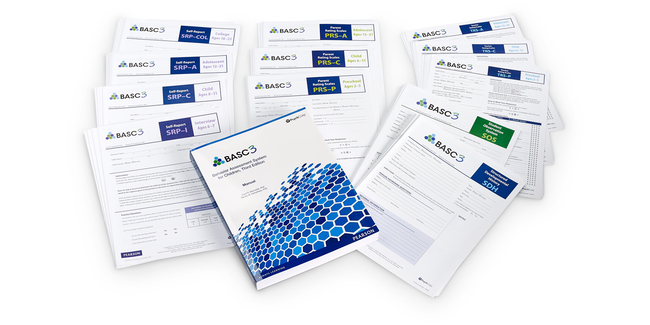A targeted individual assessment of behaviour and emotions for children and adolescents
Behaviour Assessment System for Children, Third Edition
BASC-3
A targeted individual assessment of behaviour and emotions for children and adolescents‹ View all tests and materials
BASC-3 Student Observation System (SOS) Record Form
30828
Qualification Level
C
Pack of 25
AUD 128.26
